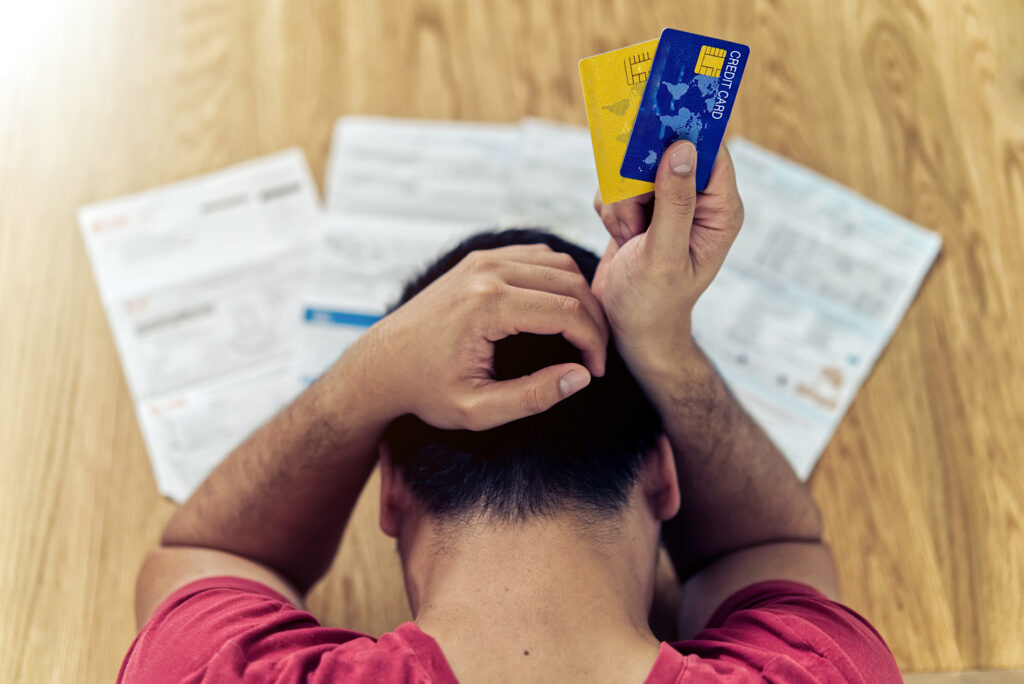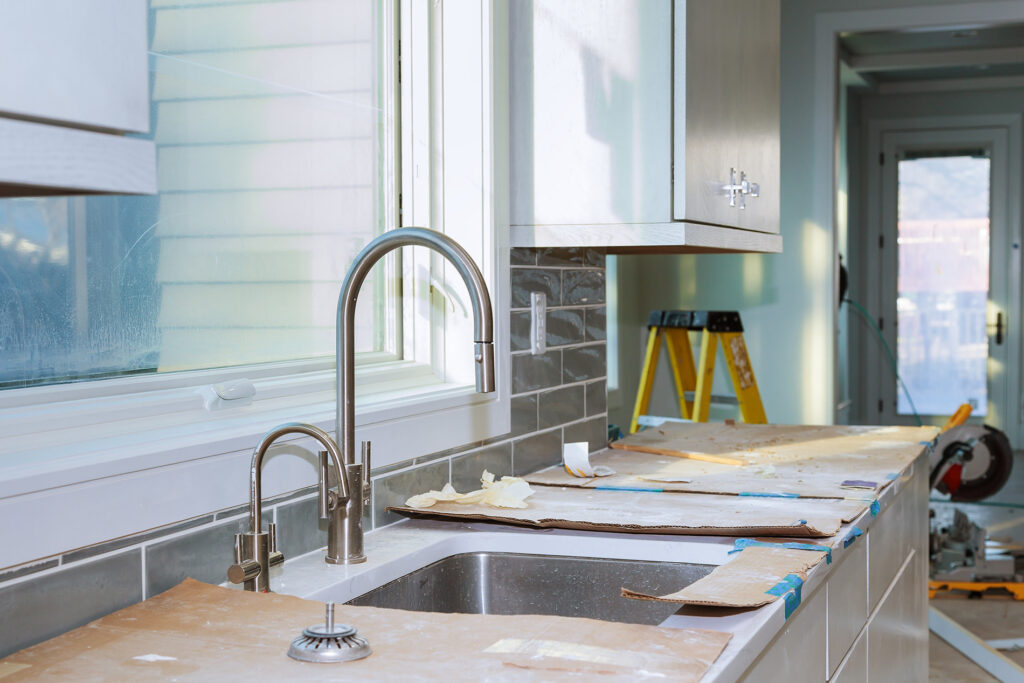The Top 8 Ideas to Make the Best Use of Home Equity
Have you ever wondered how to make the most of the equity in your home? You’re not alone! Home equity can be a powerful tool to help you achieve financial goals and improve your life. In this blog post, we’ll explore eight creative ideas for using home equity to consolidate debt, fund home improvements, finance education expenses, build an emergency fund, invest in real estate, start or grow a small business, pay off medical bills, and even fund major life events. So, let’s dive right in and see how you can make the best use of home equity!
Key Takeaways
Debt consolidation with a home equity loan can help simplify your financial life.
Investing in outdoor living spaces or making energy efficient upgrades to your home can increase its value and save on utility bills.
Home equity loans are great for major life events, diversifying investment portfolios, and even paying off medical bills, but always consider the risks before taking this approach.
Debt Consolidation with Home Equity Loan
If you’re feeling overwhelmed by multiple debts, such as credit card debt and auto loans, tapping your home equity can be a smart way to consolidate them into one manageable monthly payment. A home equity loan is also known as a second mortgage. It enables you to take out a lump sum of money against the equity in your home. With lower interest rates than most credit cards and personal loans, home equity loans can help you save money and simplify your financial life.
Prior to consolidating debt with a home equity loan, take a moment to evaluate your current financial situation and the potential impact on your monthly mortgage payment. Make sure you have a solid plan to repay the loan and avoid further debt accumulation. With careful planning and a clear understanding of your financial goals, using home equity to consolidate debt can be a smart move towards achieving financial freedom.

Home Improvement Projects for Higher ROI

Did you know that certain home improvement projects can significantly increase the value of your home? That’s right! By using a home equity loan or a home equity line of credit (HELOC), you can finance projects that not only make your home more comfortable but also have a higher return on investment (ROI).
Whether you’re considering a full kitchen remodel, a bathroom upgrade, or even an extension, a home equity loan can provide the necessary funding. The increased value of your home post-renovation can offset the loan cost, making it a financially sound decision. Moreover, the interest on such loans is often tax-deductible, adding another financial advantage.
However, it’s crucial to have a well-planned budget and project timeline to ensure the renovations don’t exceed the loan amount and that your monthly payments remain manageable.
We’ll delve into three home improvement projects that can enhance your property’s value: kitchen and bathroom renovations, energy-efficient upgrades, and outdoor living spaces.
Kitchen and Bathroom Renovations
Kitchen and bathroom renovations are among the best home improvement projects for increasing your home’s value. Studies show that a kitchen remodel can usually recoup around 70-80% of its cost, while bathroom renovations can return 70-75% of their cost upon resale. Investing in modern kitchen islands, new cabinets, updated lighting, fresh backsplash, and stylish bathroom fixtures can give your home a significant facelift while increasing its market value.
If you choose to finance kitchen and bathroom renovations with a home equity loan or HELOC, take into account the potential impact on your monthly mortgage payments and overall budget. Research different lenders and compare interest rates to find the best option for your financial situation. With careful planning, you can transform your home and enjoy the benefits of increased value, energy efficiency, and improved aesthetics.
Energy-Efficient Upgrades
Energy-efficient upgrades are another smart way of increasing your home’s value while saving on utility bills. Here are some examples of energy-efficient upgrades you can make:
Adding insulation
Installing energy-efficient windows and doors
Repairing or replacing the roof
Upgrading appliances
With these types of changes to your house, you’ll appeal to more eco-friendly and attractive to potential buyers. Moreover, you may qualify for government incentives, such as tax credits or rebates, which can further enhance the affordability of these upgrades.
Prior to financing energy-efficient upgrades with a home equity loan or HELOC, assess the potential impact on your existing mortgage and overall financial situation. Also, consider the potential energy savings and increased resale value that these improvements can bring. With a well-thought-out plan, energy-efficient upgrades can be a win-win decision for both your wallet and the environment.
Outdoor Living Spaces
Sprucing up your outdoor living spaces can also boost your home’s value and provide additional space for relaxation and entertainment. But – do understand that not all living space projects equate to an increase of valuation in your home.
However – there are some tried and true home improvement projects that should consider that typically will increase a homes worth. With home equity lending, such as a home equity loan or HELOC, you can finance improvements like:
Installing a built-in pool
Adding a closed in patio
Installing an outdoor kitchen or grilling area
Updating your home’s landscaping with beautiful flower beds and trees
- Modernizing your homes look with fresh paint and modern accents
The return on investment for outdoor living spaces improvements can vary. However, well-designed patios can add 8-10% to your home’s value, and building a new deck can have an ROI of up to 80%. By thoughtfully investing in your outdoor living spaces, you can enhance your home’s appeal and create a beautiful oasis for you and your loved ones to enjoy.
Financing Education Expenses

Paying for college can be a significant financial burden for many families. However, a home equity loan or HELOC could be a great option for funding education expenses if the lender allows it. Using home equity for college expenses can offer lower interest rates compared to student or personal loans, potentially saving you money in the long run.
Before you decide to finance education expenses with a home equity loan, be sure to contemplate the associated risks. Defaulting on the loan could mean losing your home, so weigh this option carefully and ensure you’ve explored all available federal financial aid options first. If you decide to use home equity for education expenses, create a solid repayment plan to minimize the financial risks involved.
Emergency Fund Building
An emergency fund is a vital safety net for unexpected expenses, such as job loss, medical emergencies, or car repairs. Building an emergency fund using a home equity loan or HELOC can provide you with the financial cushion you need to weather life’s storms. By tapping into your home equity, you can set aside money for emergencies without depleting your cash reserves or relying on high-interest credit cards.
However, it’s imperative to contemplate the application process and the potential impact of a home equity loan on your monthly mortgage payments before utilizing it to create an emergency fund. In addition, consider the risks of taking out a home equity loan for emergency expenses without a plan to repay it, as this could lead to serious debt. So, while using home equity for emergency fund building can be a wise decision, make sure to have a solid repayment plan in place and prioritize saving in other ways, too.
Investing in Real Estate
Home equity loans can be a valuable resource for investing in real estate, such as rental properties or vacation homes. With the average tappable equity per borrower at around $199,000, using your home equity allows you to leverage your existing property to build wealth through real estate investments.
Additionally, a cash out refinance could be another option to consider for accessing funds. But before diving into these options, it’s important to ask yourself “how much equity” you have available in your home to make the most informed decision.
Before you venture into real estate investing using home equity, weigh up the advantages and disadvantages of this approach.
On the one hand, investing in real estate can provide potential returns, diversification, and leverage. On the other hand, it’s important to consider market performance, debt burden, and property value fluctuations. Conduct thorough research and ensure you have a clear understanding of your financial goals and risk tolerance before using your home equity to invest in real estate.

Starting or Growing a Small Business

Entrepreneurs and small business owners can benefit from using home equity loans to start or grow their businesses. A home equity loan can provide the necessary capital to launch a new venture or expand an existing one. In many cases, the interest rates on home equity loans are lower than those for traditional small business loans, making them a more cost-effective financing option.
However, leveraging a home equity loan to initiate or expand a small business carries inherent risks. If your business venture fails or doesn’t generate enough income to repay the loan, you could risk losing your home. It’s crucial to assess your financial situation, create a detailed business plan, and weigh the pros and cons before using your home equity to fund your entrepreneurial dreams.
Paying Off Medical Bills
Medical bills can be a significant financial burden, affecting credit scores, housing, and even health outcomes. Using a home equity loan to pay off medical bills can alleviate financial stress and help you focus on your health and well-being.
Here are some benefits of using a home equity loan to pay off medical debt:
Lower interest rates than most credit cards and personal loans
More affordable monthly payments
Potential tax benefits
Ability to consolidate multiple medical bills into one loan
Consider exploring a home equity loan as a viable option for managing your medical debt.
Before resorting to a home equity loan to clear medical bills, make certain that you have a repayment plan to avoid piling up more debt. It’s also essential to explore other financial assistance options, such as negotiating with medical providers or applying for financial aid programs. Remember, using home equity for medical bills should be a last resort after exhausting all other options.
Funding Major Life Events
Major life events, such as weddings or once-in-a-lifetime vacations, often come with hefty price tags. Using a home equity loan to borrow money can provide the funds you need to celebrate these milestones without breaking the bank. By accessing the equity in your home, you can fund these special occasions and create lasting memories without plunging into high-interest debt.
However, bear in mind the risks that come with utilizing home equity to finance major life events. Ensure you have a solid plan to repay the loan and avoid jeopardizing your financial stability. With careful planning and responsible borrowing, you can use your home equity to make your dreams a reality.
Diversifying Your Investment Portfolio
A diversified investment portfolio can help you spread risk and potentially increase your overall returns. One way to achieve diversification is by using a home equity loan to invest in different assets, such as:
Stocks
Bonds
Real estate
Mutual funds
Exchange-traded funds (ETFs)
Commodities
Cryptocurrencies
This strategy allows you to leverage your existing property to generate additional income and build long-term wealth.
Before leveraging a home equity loan to diversify your investment portfolio, take time to meticulously evaluate the risks and benefits of this strategy. Research different investment options, assess your risk tolerance, and create a well-balanced portfolio that aligns with your financial goals.
By using home equity wisely, you can potentially grow your wealth and achieve a more secure financial future.

Down Payment Assistance for a Second Home or Investment Property
If you’re considering purchasing a second home or investment property, using home equity can help you with the down payment. By tapping into the equity in your primary residence, you can access the necessary funds to make a down payment on a second property, typically ranging between 10% and 30% of the property’s value.
Before tapping into home equity for down payment assistance, consider the advantages and disadvantages of this approach and assess its potential impact on your overall financial status. It’s important to ensure you can afford the extra monthly mortgage payments and have a plan in place to manage your investment property.
With careful planning and responsible borrowing, you can use your home equity to expand your real estate portfolio and build long-term wealth.
Article Summary
In conclusion, home equity can be a powerful tool to help you achieve various financial goals and improve your life. By leveraging the equity in your home, you can consolidate debt, finance home improvements, pay for education expenses, build an emergency fund, invest in real estate, start or grow a small business, pay off medical bills, fund major life events, diversify your investment portfolio, and even assist with down payments on second homes or investment properties. It’s essential to carefully consider the risks and rewards associated with each strategy and make informed decisions that align with your financial goals and risk tolerance. With responsible borrowing and sound financial planning, you can unlock the full potential of your home equity and create a brighter financial future.
Frequently Asked Questions (F.A.Q)
What is the best way to use the equity in your home?
Using home equity can be a great way to pay off high-interest loans, fund home improvements or renovations, and consolidate debts. It’s an attractive option for those who need a large amount of cash but don’t want to change their first mortgage.
What do most people use home equity for?
Most people use home equity for home improvements, renovations, increasing their home’s value, and preparing to sell their property. Home equity loans and HELOCs are popular options for financing these projects.
How can I use my home equity to make money?
How can I use my home equity to make money? You can borrow against your home equity and invest in real estate, become an entrepreneur, manage debt, finance education, create generational wealth, get a home equity loan or HELOC, or opt for a cash-out refinance.
What is not a good use of a home equity loan?
A home equity loan should not be used to pay for vacations, basic expenses, luxury items, cars, or to fund a lifestyle your income doesn’t support. It can also be a bad idea if it will overburden your finances or merely shift debt around. Use home equity wisely and only for items that can improve your financial position in the long run.
Can I use a home equity loan to pay for college expenses?
Yes, you can use a home equity loan to pay for college expenses, if the lender allows it and you have a solid plan to repay the loan.
Where can I APPLY for a home refinance or second mortgage / HELOC?
Applying for loan that let’s you access your home equity is easy and straightforward with The Wholesale Mortgage Firm, LLC. Simply click on the button to get started and to have a qualified loan officer provide expert guidance.

